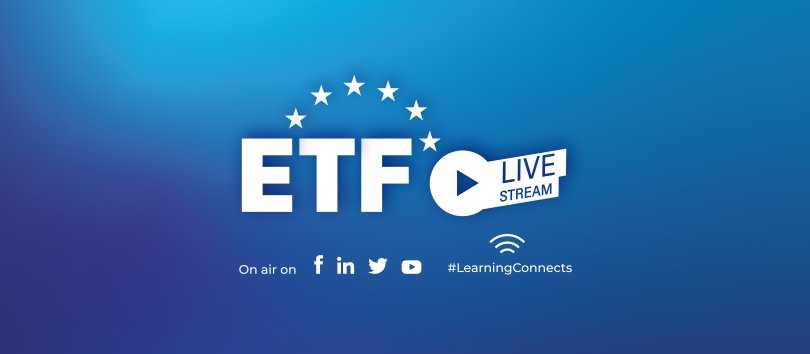
Teachers are heroes: educating before, during and after pandemic-related lockdowns
Without question, the pandemic has ushered in a new age. For teachers, this has meant long overdue recognition for the significant role they play in society. Though the intrinsic value of the teaching profession in human capital development has always been a reality, it is now obvious to the broader public. But will teachers continue to be lauded for their essential contribution to humanity?
On World Teacher’s Day, 5 October 2022, this question was put to two teachers and an education expert during the European Training Foundation’s LearningConnects Livestream, Focus on Teachers, hosted by Maria Lvova Zolotarevskaya, a Communication Officer at the ETF. The speakers included:
-
Jelena Matić, a teacher at the Aviation Academy in Serbia,
-
Jawad Adel Al Gousous, the Country Director at DVV International in Jordan
-
Julian Stanley, a Senior Human Capital Development Expert at the ETF
The purpose of the livestream was to underscore the challenges teachers and learners faced when forced to make the switch to digital learning during lockdown. The discussion also explored how the experience changed their profession and how they are adjusting to life now that they are back to in-person learning.
“We are finally valued for what we are doing,” says Jelena Matić. However, according to Julian Stanley, even though the social significance of teachers as frontline workers became clearer during lockdown, the effect may not last. If policy makers want to signal that they value what teachers do, they have their work cut out for them.
“I am concerned that some teachers have been greatly fatigued by the experience of COVID and the challenges of distant teaching and learning,” he says. Indeed, some countries are experiencing “a shortage of certain kinds of teachers and older teachers are taking early retirement”.
What complicates an already stressful situation is bureaucracy. Both Matić and Al Gousous say that the amount of administrative tasks increased during the pandemic and has remained high ever since. Matić says that in addition to preparing classes and introducing innovative ways to teach a subject, teachers are under constant pressure to hand in paperwork by those who deem it important.
According to Stanley, policymakers should actively listen to teachers instead of pushing them to work in a prescribed way because “teachers are motivated by improving the lives of their learners and when they see an opportunity to do so, they are ready to work enormous hours - they are ready to find the energy and the creativity to make things happen”. Education ministries ought to put their efforts into identifying the areas where teachers want to give more and then provide them with the means to do so.
Another issue that needs to be addressed is communication in the classroom between teachers and learners as well as amongst the learners themselves. Though there is joy in being back together Matić has observed that learners have forgotten how to communicate, to behave in certain situations and are afraid to talk to each other.
Moreover, while the pandemic-imposed experiment in digital learning spawned adepts of social networks and media, students no longer seem to know how to use analog tools like books and pencils. Though readjusting to face-to-face learning will take time, the panel agreed unequivocally that in-person learning is indispensable and cannot be replicated online.
Al Gousous was quick to point out how working with adults is different because they “are part of the learning process - they are part of the approach itself and are part of knowledge creation. Adults come to class because they want and need to be there”. The motivation of adult learners and younger learners is, therefore, difficult to compare.
Finally, the panel acknowledged that the future of teaching and learning will undoubtedly be hybrid. There is no going back, but teachers and learners need to be equipped with the right skills and the right tools. As Stanley says, “it’s not enough to expect teachers to use the approaches research shows are good or which are recommended - teachers have to find blended approaches they feel work for their own personal style”.
Collaboration is also key. Teachers learn from other teachers. Sharing best practices through fora such as The ETF’s SELFIE or The Community of Innovative Educators can go along way in shepherding educators during this critical transition period.
Just as teachers need guidance in using digital tools, learners also need help navigating the mass of information available in the digital sphere. Teachers can develop the skills necessary to show learners how to deal with data overload successfully. In any case, the goodwill towards teachers and their invaluable contribution must be maintained through strong communities and equally strong policy measures.
#WorldTeachersDay #WorldTeachersDay2022
Did you like this article? If you would like to be notified when new content like this is published, subscribe to receive our email alerts.